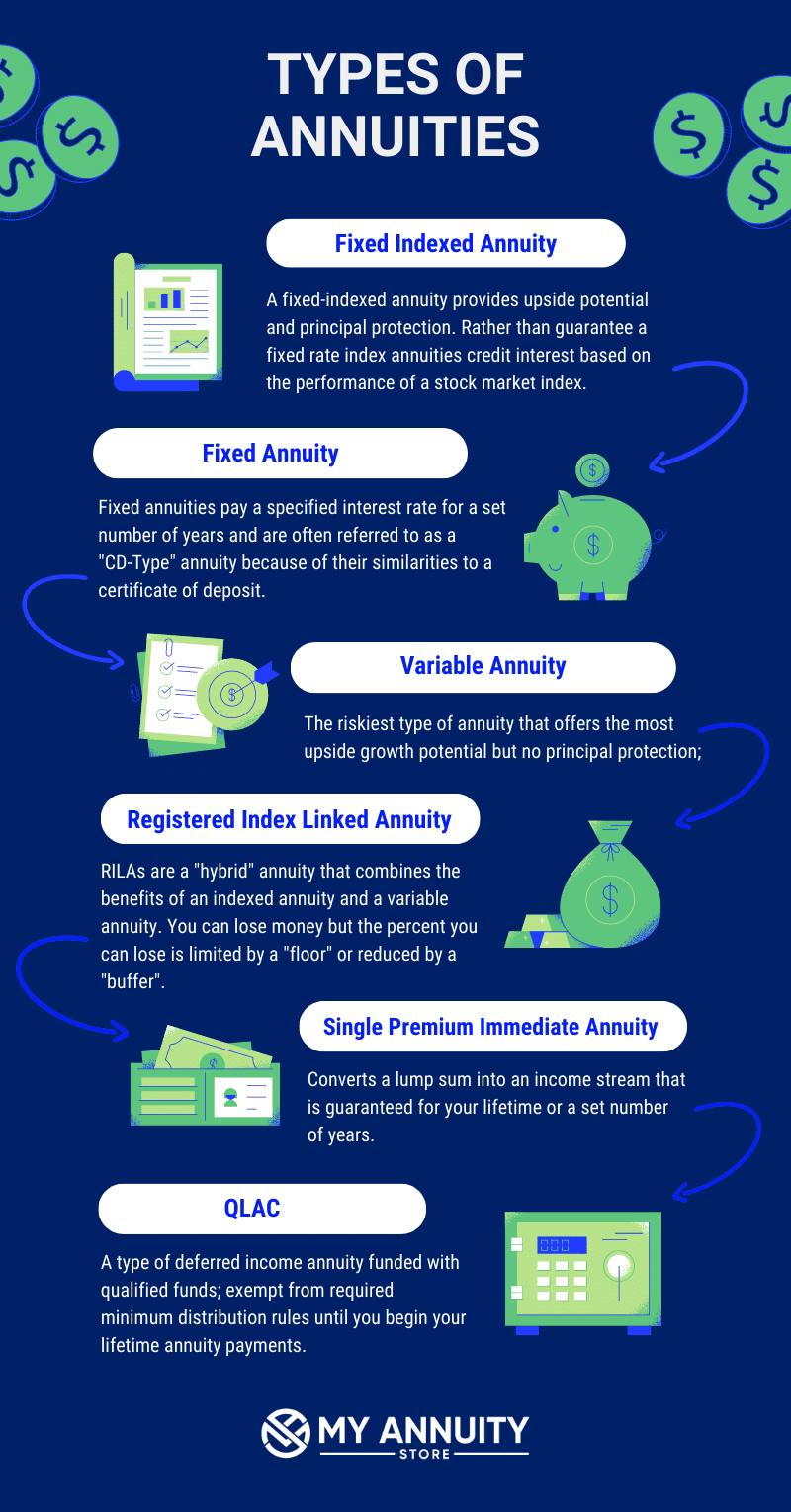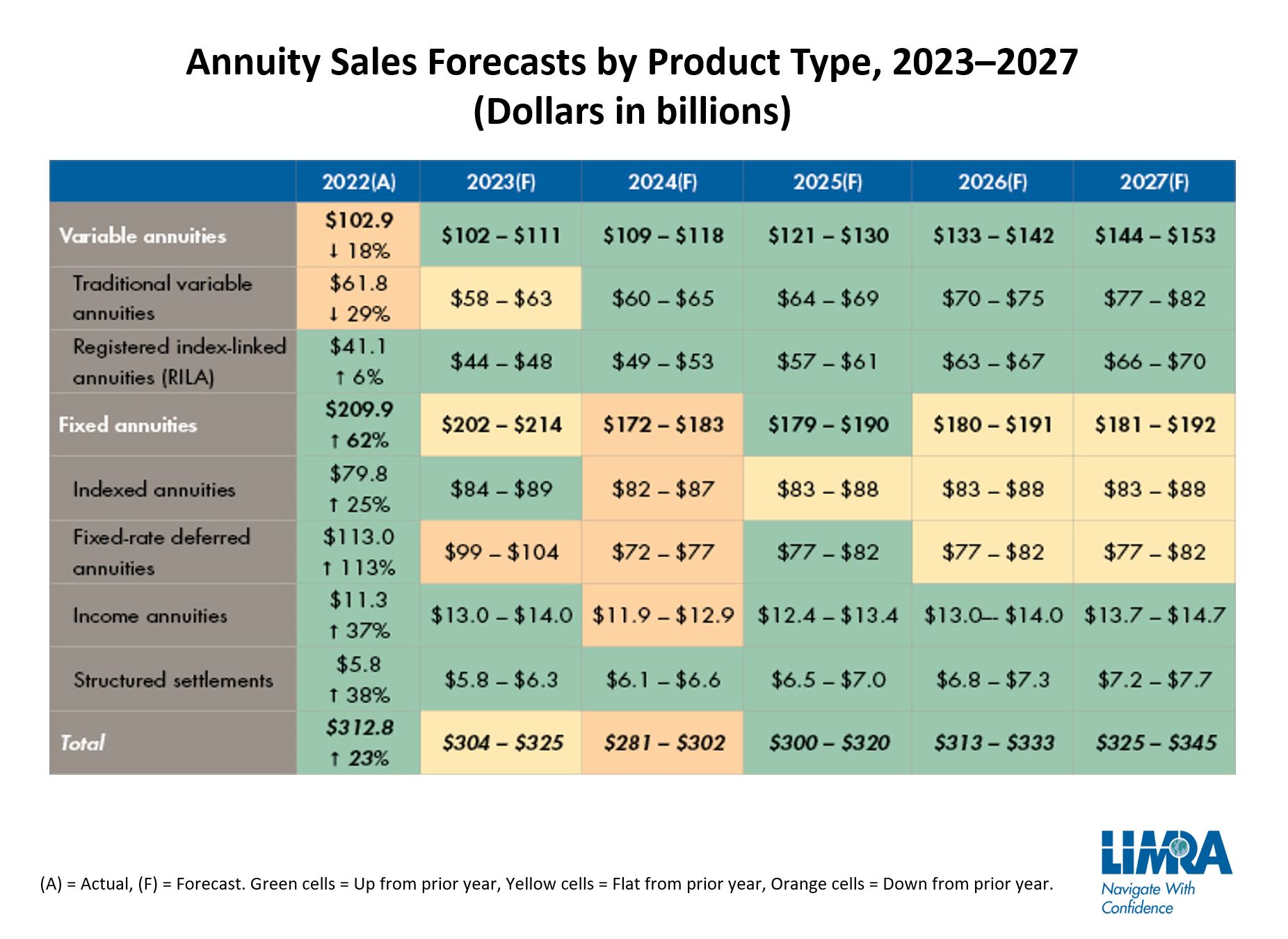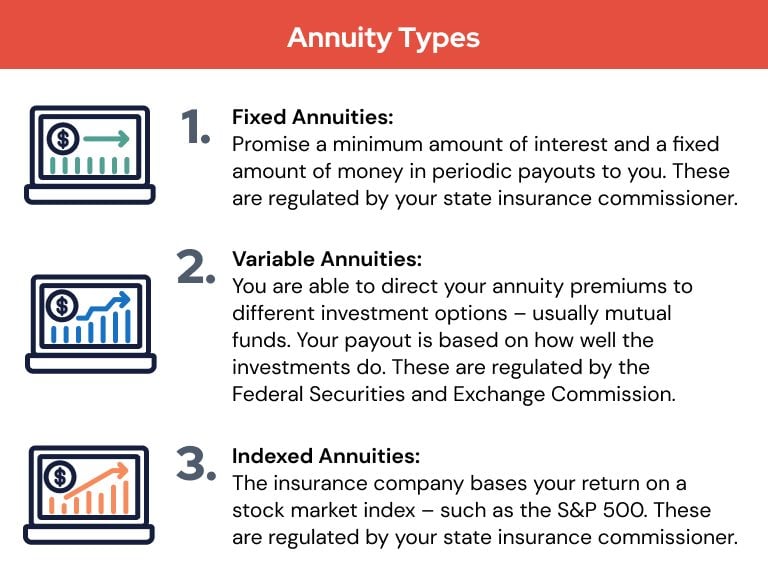All Categories
Featured
Table of Contents
Simply as with a fixed annuity, the proprietor of a variable annuity pays an insurance provider a swelling amount or series of repayments for the promise of a collection of future settlements in return. But as mentioned above, while a fixed annuity expands at an assured, constant price, a variable annuity grows at a variable price that relies on the performance of the underlying investments, called sub-accounts.

Throughout the accumulation stage, properties bought variable annuity sub-accounts grow on a tax-deferred basis and are tired just when the agreement proprietor takes out those incomes from the account. After the buildup phase comes the revenue stage. With time, variable annuity possessions ought to theoretically increase in worth up until the agreement proprietor decides he or she wish to start withdrawing cash from the account.
The most considerable concern that variable annuities normally present is high cost. Variable annuities have numerous layers of charges and expenses that can, in accumulation, create a drag of up to 3-4% of the contract's value each year.
Decoding How Investment Plans Work A Comprehensive Guide to Investment Choices Breaking Down the Basics of Variable Annuities Vs Fixed Annuities Benefits of Choosing the Right Financial Plan Why Choosing the Right Financial Strategy Is a Smart Choice Variable Annuity Vs Fixed Annuity: A Complete Overview Key Differences Between Different Financial Strategies Understanding the Rewards of Long-Term Investments Who Should Consider Fixed Vs Variable Annuities? Tips for Choosing What Is A Variable Annuity Vs A Fixed Annuity FAQs About Planning Your Financial Future Common Mistakes to Avoid When Choosing a Financial Strategy Financial Planning Simplified: Understanding Fixed Income Annuity Vs Variable Growth Annuity A Beginner’s Guide to Smart Investment Decisions A Closer Look at Fixed Annuity Vs Variable Annuity
M&E expenditure charges are determined as a portion of the agreement value Annuity companies pass on recordkeeping and various other management expenses to the agreement owner. This can be in the kind of a level yearly charge or a percent of the agreement value. Administrative costs might be consisted of as part of the M&E danger fee or may be evaluated independently.
These fees can vary from 0.1% for easy funds to 1.5% or more for proactively handled funds. Annuity agreements can be customized in a number of methods to offer the details needs of the contract owner. Some typical variable annuity bikers consist of assured minimal buildup advantage (GMAB), assured minimum withdrawal advantage (GMWB), and assured minimal income benefit (GMIB).

Variable annuity payments give no such tax obligation deduction. Variable annuities tend to be extremely inefficient vehicles for passing wide range to the following generation because they do not enjoy a cost-basis modification when the original contract proprietor passes away. When the proprietor of a taxed investment account passes away, the price bases of the investments held in the account are adapted to mirror the market prices of those financial investments at the time of the owner's fatality.
Breaking Down Your Investment Choices Everything You Need to Know About Indexed Annuity Vs Fixed Annuity Breaking Down the Basics of Fixed Vs Variable Annuity Pros Cons Features of Smart Investment Choices Why Fixed Vs Variable Annuities Matters for Retirement Planning How to Compare Different Investment Plans: Explained in Detail Key Differences Between Different Financial Strategies Understanding the Key Features of Long-Term Investments Who Should Consider Variable Annuity Vs Fixed Annuity? Tips for Choosing the Best Investment Strategy FAQs About Planning Your Financial Future Common Mistakes to Avoid When Choosing Deferred Annuity Vs Variable Annuity Financial Planning Simplified: Understanding What Is A Variable Annuity Vs A Fixed Annuity A Beginner’s Guide to Smart Investment Decisions A Closer Look at Variable Annuity Vs Fixed Annuity
Such is not the case with variable annuities. Investments held within a variable annuity do not obtain a cost-basis change when the initial owner of the annuity dies.
One substantial issue associated to variable annuities is the potential for problems of interest that may exist on the component of annuity salespeople. Unlike a monetary advisor, that has a fiduciary responsibility to make investment choices that profit the customer, an insurance policy broker has no such fiduciary obligation. Annuity sales are very profitable for the insurance experts who offer them due to high in advance sales payments.

Numerous variable annuity agreements include language which places a cap on the percentage of gain that can be experienced by particular sub-accounts. These caps avoid the annuity proprietor from fully joining a part of gains that could or else be appreciated in years in which markets produce considerable returns. From an outsider's point of view, it would seem that capitalists are trading a cap on investment returns for the abovementioned guaranteed flooring on financial investment returns.
As noted above, give up costs can seriously restrict an annuity proprietor's ability to move possessions out of an annuity in the very early years of the contract. Additionally, while most variable annuities enable contract owners to take out a defined quantity throughout the buildup phase, withdrawals yet quantity normally result in a company-imposed fee.
Withdrawals made from a fixed rate of interest financial investment alternative can additionally experience a "market value change" or MVA. An MVA changes the worth of the withdrawal to mirror any type of modifications in rates of interest from the time that the cash was invested in the fixed-rate choice to the time that it was withdrawn.

Quite frequently, also the salespeople who sell them do not fully recognize exactly how they work, and so salesmen often victimize a buyer's feelings to sell variable annuities rather than the qualities and suitability of the products themselves. We think that investors should completely understand what they own and exactly how much they are paying to possess it.
Analyzing Strategic Retirement Planning A Closer Look at Fixed Vs Variable Annuity Defining Fixed Annuity Or Variable Annuity Advantages and Disadvantages of Different Retirement Plans Why Choosing the Right Financial Strategy Is Worth Considering Deferred Annuity Vs Variable Annuity: Explained in Detail Key Differences Between Different Financial Strategies Understanding the Risks of Long-Term Investments Who Should Consider Indexed Annuity Vs Fixed Annuity? Tips for Choosing Indexed Annuity Vs Fixed Annuity FAQs About Planning Your Financial Future Common Mistakes to Avoid When Choosing Fixed Vs Variable Annuities Financial Planning Simplified: Understanding Your Options A Beginner’s Guide to Retirement Income Fixed Vs Variable Annuity A Closer Look at Fixed Annuity Vs Variable Annuity
The exact same can not be said for variable annuity assets held in fixed-rate investments. These properties legitimately come from the insurer and would certainly for that reason be at risk if the company were to stop working. Any kind of assurances that the insurance coverage firm has actually concurred to offer, such as an assured minimal income advantage, would certainly be in question in the occasion of a service failure.
Prospective purchasers of variable annuities need to recognize and take into consideration the financial problem of the releasing insurance company before entering right into an annuity contract. While the advantages and drawbacks of numerous sorts of annuities can be questioned, the genuine issue bordering annuities is that of viability. Place simply, the inquiry is: who should own a variable annuity? This inquiry can be hard to answer, offered the myriad variants offered in the variable annuity cosmos, however there are some fundamental guidelines that can aid investors decide whether or not annuities ought to contribute in their monetary plans.
As the saying goes: "Customer beware!" This write-up is prepared by Pekin Hardy Strauss, Inc. Fixed annuity contracts. ("Pekin Hardy," dba Pekin Hardy Strauss Riches Management) for educational purposes just and is not intended as an offer or solicitation for organization. The details and data in this article does not make up legal, tax, audit, financial investment, or other expert advice
Table of Contents
Latest Posts
Understanding Financial Strategies Everything You Need to Know About Fixed Income Annuity Vs Variable Annuity Defining the Right Financial Strategy Advantages and Disadvantages of Different Retirement
Breaking Down Your Investment Choices Key Insights on Your Financial Future What Is Deferred Annuity Vs Variable Annuity? Advantages and Disadvantages of Different Retirement Plans Why Choosing the Ri
Exploring the Basics of Retirement Options Everything You Need to Know About Fixed Interest Annuity Vs Variable Investment Annuity What Is What Is A Variable Annuity Vs A Fixed Annuity? Features of Sm
More
Latest Posts